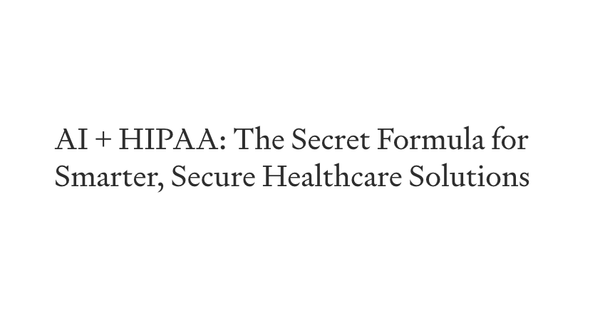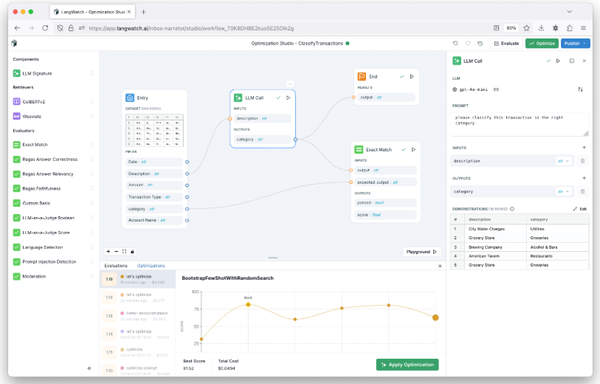Integrating Coding Education in Healthcare: A New Frontier
Table of Content
With technological advancement and the ability to harness great insights through data analysis, the healthcare industry does not seem to keep back. Coding education impresses as an emphatic frontier of integration given the ever-sophisticated software and data management systems that medical practices currently lean toward.
Adding coding skills into healthcare can do so much in improving patient care, smoothing operations, and innovating intelligent solution paths for uncannily complex problems in medicine.
Importance of Coding in Healthcare
Enhancing Patient Care
It allows for the development and deployment of applications that have immense benefits in healthcare, from the construction of patient management systems to diagnostic tools. This way, coding empowers practitioners to make proper use of technology, enhancing accuracy and efficiency. An example is such algorithms can be seen in diagnosing diseases from medical images, predicting the outcomes of patients, and personalizing treatment plans according to the data extracted from the patients.
Streamlining Operations
Integrating coding education can make healthcare workers more efficient at administrative tasks, which are often very time-consuming and prone to many errors. It automates routine tasks, manages electronic health record-keeping more efficiently, and observes regulatory standards. This reduces the administrative burden on healthcare providers, allowing them to focus more on patient care.
Driving innovation
This provides several avenues of innovation at the junction of coding and healthcare. Healthcare professionals, knowing coding, can enable the process of creating new medical technologies—ranging from wearable health monitors to telemedicine platforms and AI-driven diagnostic tools—all under one umbrella, enabling innovations that will give way to more proactive and preventive healthcare, definitely bound to bring improved patient outcomes.
Tools and Platforms for Learning Coding
There are multiple tools and platforms developed to enable easy and enjoyable learning of coding for health professionals at all levels, from beginner-friendly environments to more advanced languages and frameworks.
Beginner-Friendly Platforms
Friendly beginners' platforms are usually a great place to start for people who have never coded before. The interactive lessons within these platforms playfully engage users in the basics of coding. Core concepts of coding are taught through game-based learning, which makes it easier for beginners to understand complex ideas.
Advanced Coding Platforms
As students become more advanced, more complex programming languages such as Python, R, and SQL can be introduced. All of them have specific relevance to health care in activities around data analysis, machine learning, and health application development. Courses teaching these languages normally use exercises and real-world projects to enhance learning outcomes.
Specialized Programs in Healthcare Coding
There are also specialized coding programs within the healthcare industry. Such programs teach coding skills relevant to healthcare applications, which involve developing electronic health record systems, medical billing software, and health data analytics tools. By being attuned to industry-specific needs, these programs ensure that learners acquire skills directly applicable to their professional roles.
Interactive Learning Experience
Hence, interactive courses are designed to keep learners engaged. Most times, a game-based approach to learning coding is employed on the platform; the learner sees the result of their work instantaneously. This means that hands-on experience is critical in applying conceived ideas in the coding learnings to real-life instances.
Progressive Curriculum
A progressive curriculum grows with the learner, starting from the basics of coding concepts to very advanced ones, always challenging the learner but not overwhelming them. This is an approach credited with particular significance to health professionals who are new in coding yet need to acquire skills the fastest.
Real-World Applications
These should emphasize the practical applications of coding. Simulated real-life healthcare-focused coding projects should be brought to these platforms so it is ensured that the learned skills and knowledge are transferred directly into professional settings. Not only does this approach reinforce such learning—practically demonstrating tangible benefits for the use of coding in healthcare—but it also elaborates further on the key elements in this sector.
The Future of Coding in Health Care
The further time goes on, the more imperative will be the need for the provision of education in coding within healthcare. Empowerment of innovation, improvement in patient care, and smoothing of operations all are possibilities that can be attained by providing health professionals with coding skills. Codemonkey.com is therefore playing a very significant role in making coding education accessible and engaging, hence bridging the gap between healthcare and technology.
The last frontier of integration of healthcare coding education now opens to a brim with huge potential. This learning by healthcare professionals can be accelerated through some highly accessible, engaging coding platforms that would equip professional skills necessary for chartering the future course of their profession.
This fusion—not just of Healthcare and Encoding—holds out strong promises to make healthcare more efficient and effective, but it also clears the run-up to very fundamental life Concord innovations in the care of patients.











